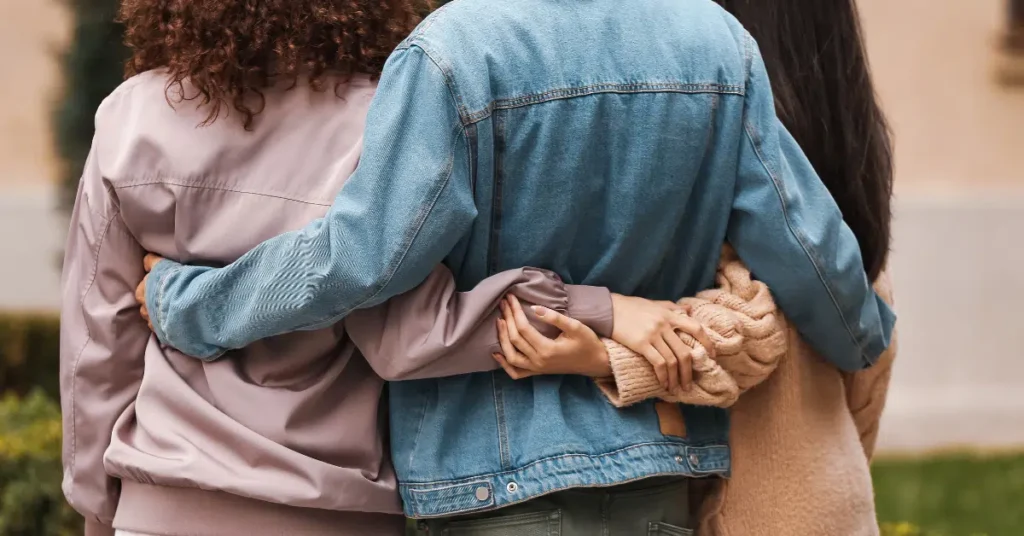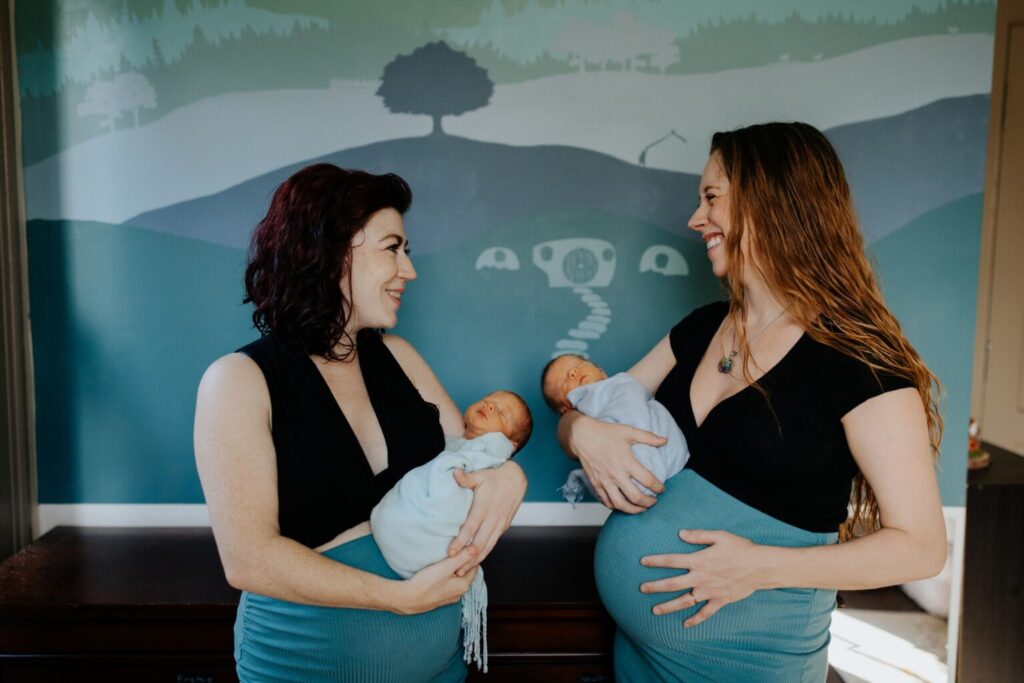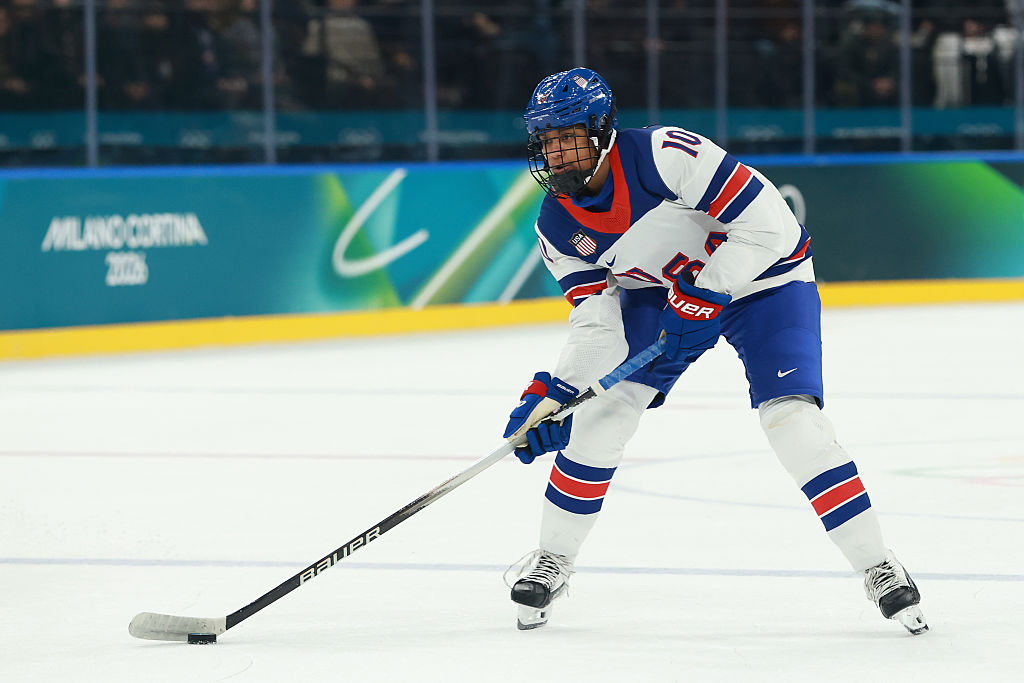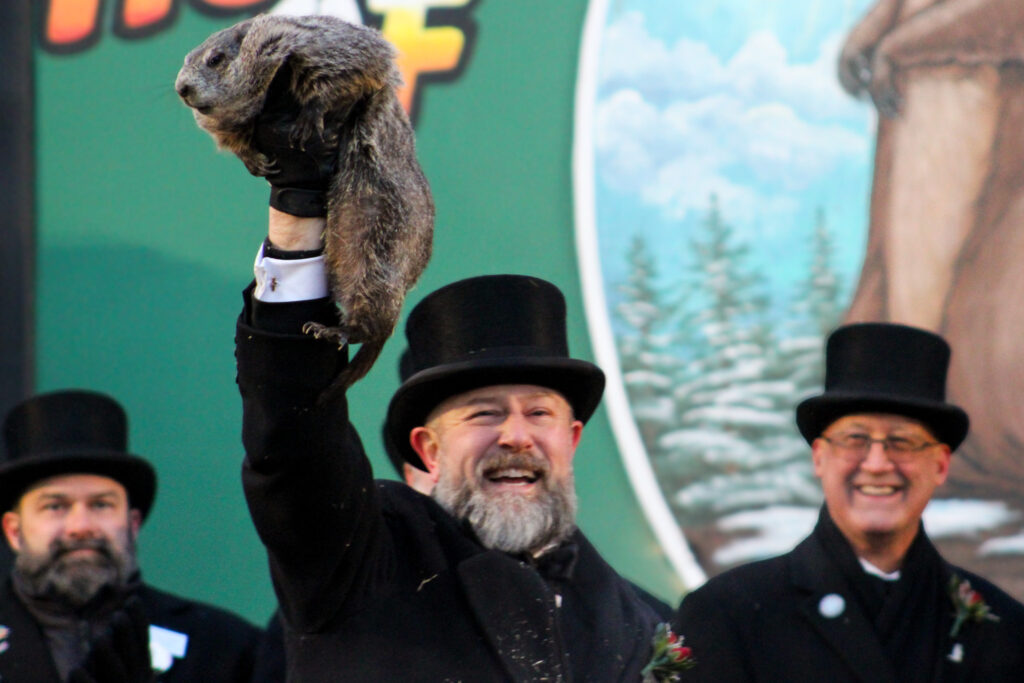I Stayed Silent About My Assault So No One Would Question My Queerness

“Wasn’t she assaulted? Poor girl, that’s why.”
Can you become a lesbian after sexual assault?
“Come home with me, you won’t be gay anymore,”
“You just haven’t had good dick,”
“Are you sure you don’t like men?”
Back when I used to entertain men at bars (now I just straight up ignore them), I used to hear the same variation of these sentences constantly, and I’m sure you, dear reader, have too. There comes a time in almost every woman’s life where the “little” sexual harassments, the “you just haven’t been f*cked right” are so frequent that you become numb to them. If you weren’t, you could never walk down the street, or drink in a bar, or ride the subway. I am not traumatized, or frankly even affected by these comments because I can’t be. I got filled up. There’s no more room for internalization. Then the #metoo discussion exploded, and I felt like, well, a gaping wound, to be honest.
With the news of Ellen Page’s heartbreaking and empowering Facebook post, I thought of these comments and how they’re specifically aimed at queer women. I thought of sexual harassment/assault and queerness and the way they do or don’t interact and inform one another. I thought of Lisa*, a bisexual seventeen-year-old who messaged me on Instagram to tell me “he held me down and told me he would turn me straight.” I thought of what I, what we, could ever do to close these wounds, to open a healing dialogue.
I knew I wanted to write about this, but I didn’t know what to say. That shocked me because I ALWAYS have something to say. If you read my writing, you know that I’m the queen of TMI. The time I set my vagina ablaze with Toy cleanser, the time I made up a relationship in my head, the time I cheated in the physically challenged Olympics. I’m not scared to talk about anything. Nothing is off limits in my writing. Besides sexual assault.
But now, I can’t get it out of my head. I never told anyone I was sexually assaulted because I didn’t process it. In fact, it didn’t seem like an “assault” the way I imagine when I hear that word. When I started writing essays for a living, I never wrote about my sexual assault because I felt like I didn’t have language for it. As someone who is impatient and fun-seeking, I hate tracing the root of my ~traumas~. It seems exhausting and pointless. But #metoo has made me question: why can I talk about deciding between two strap-ons, but not something as serious and relevant as assault? And I realized: I kept my mouth shut because I was terrified someone would attribute my queerness to it.
When I reached out on social media asking to speak with queer survivors, I was not prepared for the heaviness I’d feel. It didn’t feel like research. It felt like opening up to friends. But I didn’t know what to do with these quotes.
“I wanted to tell someone but told myself it was my fault. I shouldn’t have invited him over especially since I was alone… He knew about my wife and had even talked to her before,” Liz* shared with me. She hasn’t told anyone else about her experience, even her wife. I think of women that were assaulted because of their queerness: because it was seen as changeable, or as vulnerable. I thought of how these women are holding up during this cultural moment.
We already know what a perfect survivor is: a white, thin, able-bodied, non-sex worker, cisgender woman. We believe and offer support to women like Gwenyth Paltrow. Or the woman who was raped by Brock Turner because her case was easy for the media to sensationalize as the dark alleyway, good family girl, with multiple witnesses type of crime. Perfect victims, like all of us, deserve our support, but they are the only ones getting it. The world not believing marginalized women can most recently be seen in Lena Dunham’s denial of Black actress’ Aurora Perrineau’s sexual assault.
The mistrust of non-perfect women plays out in multiple arenas: we aren’t believed when we come forward about assault. We are suspect when we declare our queer identities: “You just haven’t met the right guy.”
When I did acknowledge that what happened to me could be considered assault, I still hesitated speaking about it. I felt I didn’t fit into a narrative that would elicit sympathy and support. I was drunk, I’m queer, and I wasn’t traumatized, not in the sense that perfect victims were portrayed.
In high school, I had a friend named Mia* on the bus. One day, she told me she was bi. After owning language for her sexuality, she became a beacon of hope. I wasn’t a weird sexual deviant because I masturbated to my dad’s dirty magazines, I realized. I was queer.
My mom really liked this girl, said she was a “good kid.” I figured I’d test the waters with my mom’s opinion of queerness through her opinion of Mia.
“So my friend Mia is bi…” I started.
“Wasn’t she raped? Poor girl, that’s why,” my mom said.
She had been. I internalized that moment. Being raped is bad. Being gay is bad. And being raped can turn you into a lesbian: double bad.
Like many students across the country, I didn’t learn about consent. I wasn’t taught how to say no. I wasn’t taught to center my comforts/desires in a sexual situation. So, when I was assaulted, I, quite literally, shrugged it off. I didn’t process trauma; I even went to IHOP with my friends right after.
So, I know that I’ve avoided it initially because it didn’t register. I know I avoided it as an adult to make sure others are sure, that my assault and sexual orientation are separate. But that school of thought leaves out nuance, and messiness. There is an incredible essay, Welcome Effects: When Sexual Violence Turns Girls Queer, by Jen LaBarbera on the link between her assault and queerness. She writes, “My sexual interactions and realities and pleasure-seeking moments are inextricably wrapped up in my experiences of abuse.”
Even writing this essay, I still feel the need to insist upon my “authentic” queerness which is not fair and not realistic. Our resident sex educator, Corinne Kai speaks on this: “It took me years to come out because I didn’t want to be queer if I wasn’t ~really~ queer. You know, if rape had made me queer, then I just had to process my trauma and then I’d not be queer anymore. Which is not my truth and I know that now. But I don’t think I’ll ever know if my experiences with sexual violence are correlated to my queerness. I know it’s possible. I know that the anti-sexual violence community doesn’t want to hear that. The queer community doesn’t want to deal with that truth. But it’s there, and it needs to be talked about so that the next confused 21-year-old searching on Google has something come up in the results that helps them feel less alone.”
Do all queer SA survivors silently suffer in this way? Is this a type of anxiety specific to queer women? My friend Elaina* describes this perfectly: “Women’s lesbianism is seen as tenuous, subject to change. Something that happened to you or something you did for survival can be used against you and used to discredit all lesbians,” she continues, “People don’t trust that women are sure of their identities. People hear that a gay woman has been with men and suddenly her identity is up for debate whereas a gay man is usually allowed to have a complicated past.”
I was 16 years old when I was sexually assaulted. I had already had sex with both men and women (I guess girls and boys). I am thankful for that, as messed up as it might sound. I had sex with men and women after my assault. Sex with any gender never brought up my assault or triggered me. All of it felt pleasure seeking, though not all if it was pleasurable. I tolerated sex with men. I LOVED sex with women. I didn’t process it while it was happening, I didn’t process it after. I processed it before.
A guy my friend and I had been partying with followed me to the bathroom. If I walk through that door, he will rape me I remember thinking to myself. Then I took a deep breath and pushed open the door.
As a proud lesbian, does thinking that queerness can be “caused” make me uncomfortable? Yes. But I think it’s important to make space for that nuance. We must eliminate the idea of their only one way of being something. Eliminate the isolating and alienating idea that there is one version of authenticity.
Most women I know, both queer and straight, have experienced some degree of sexual harassment or assault. That has been made especially clear with #metoo. So on an obvious level, no, queerness isn’t caused by sexual assault. But by insisting that, we could be leaving out women that feel their queerness has perhaps been informed by it, like Jen LaBarbera. What empowers me is to see queer women coming forward, not worrying about what it says or doesn’t say about their sexuality.
If one enjoys having sex with women, and can form legitimate feelings for women, how else could she have gotten there if not for an authentic “queerness”? Jen LaBarbera writes, “If we, in our queer communities, truly based our rhetoric on the assumption that nothing could legitimize or de-authenticate our queerness, there would be no need to fear speaking honestly about these things we censor in ourselves.”
Rape culture, misogyny, and homophobia come together to create a dumpster fire of pressure on SA assault survivors. There’s pressure to not be queer if your perpetrator is the same sex, there’s pressure to not be queer if your rapist isn’t, there’s pressure to blame yourself. If the majority of women have been assaulted to some degree, wouldn’t there be no straight women left? So, it is ridiculous to directly attribute queerness to assault… Which in turn, isolates women that do see a link between their queerness and assault.
In our culture, especially now, we’re often forced to make a conclusion. Pick a side. Writing essays, after all, are better when they make an argument. But I don’t have one. I have questions. I have a desire to be more open-minded and less elitist about my queerness. I want to have less anxiety about acknowledging hard topics. But what we need in our community is the space to have these difficult conversations. Like Jen LaBarbera writes, “Talk about the messiness, if your reality is messy. Don’t shy away from it.”
How can we combat the sexist homophobic rape culture we live in? Talk about our messy realities. Talk about our traumas. Talk about our sexuality. Talk about ourselves. Yes, that includes how we groom our pubes, how we spend $800 a month on ubers, and how to eat ass. I count all our stories as resistance. As celebration. As a contribution.
When I started this essay, my initial thought was to research text books, doctors, websites… But what if the most terrifying and raw part of life, trauma, and sex, is that you can’t intellectualize any of it? Maybe it seemed too daunting, maybe I’m a lazy entitled millennial… But more aptly, maybe I know that no matter what the books and the doctors say, we know ourselves and our sexualities best. I know that my sexual assault and queerness have no connection. Others, like Jen LaBarbera, acknowledge a messy, inevitable link. Both realities can exist at once. Both queer identities are valid. Both women are survivors.
Dayna Troisi is proud to be a staff writer at GO Magazine. Her essays have been published in Buzzfeed, Vice, SELF, Racked and more. Her poems have been published in Stirring, Wordgathering, all the sins and more. Dayna is passionate about writing essays that focus on lesbian dating, beauty + fashion and her badass bionic arm.












